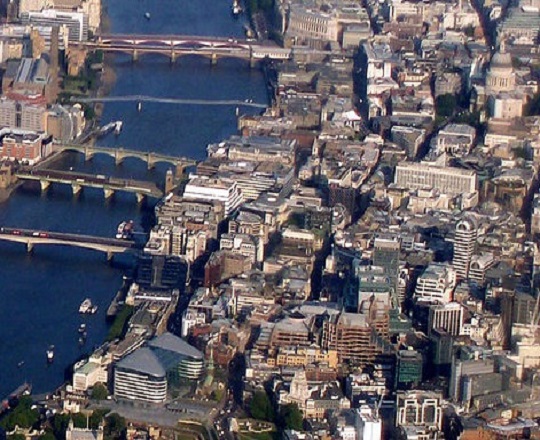Cities are changing

Lockdown is being lifted and England is gradually coming back to life.
The Government is advising people to return to work, while avoiding public transport if they can.
This raises the possibility of traffic gridlock in our towns and cities. Pollution has halved in our cities during the lockdown and it is estimated that 11,000 pollution related deaths were avoided in Europe during April alone.
While CO2 emissions have reduced, it has not reversed climate change. CO2 can remain in the atmosphere for centuries. But lockdown has shown that, while Governments have set vague long term aims for reducing greenhouse gas emissions, improvements in air quality can be made quickly.
So many cities are already taking action to restrict traffic in city centres.
London
In London many streets are being closed to vehicles other than public transport. The areas covered include main routes across an area stretching from London Bridge to Euston, Waterloo and Shoreditch.
The same is happening between Old Street and Holborn. While all motor vehicles will be banned in the Cannon Street area. The Boroughs of Hackney and Lambeth are already closing roads and widening pavements.
Manchester
Oxford Road is described in the Transport for Greater Manchester website as “one of Europe’s busiest bus routes”. Now private motorists will be banned from large sections of it with “Dutch style” cycle lanes among other environmental improvements.
Hathersage Road and Portland Street will receive similar treatment. Deansgate is temporarily pedestrianised and the “aspiration is for the change to become permanent”. More than a dozen footway widening schemes are being introduced, including London Road and Princess street in the city centre.
York
York has had a problem with traffic congestion for a long time. Local authorities have traditionally used measures like road widening – which is not possible in the historic narrow streets in York city centre.
So more radical measures will be introduced, with only electric vehicles and cycles being allowed. This will make York the first zero emission city centre.
Others
Birmingham is drawing up “emergency plans” for limiting the access for private cars to the city centre. On street parking areas will be removed to allow for wider pavements, with new cycle and bus lanes being introduced.The Dudley Road improvement scheme is being reviewed.
Leeds is making changes to the ongoing works on Greek Street (off Park Row). Further proposals include widening the walkways to enable bars and restaurants to introduce outdoor seating areas.
Brighton has closed Madeira Drive (along the seafront) to traffic.
Bristol is drawing up plans to pedestrianise large parts of the city centre including Corn Street, Small Street and Broad Street. This will be in addition to a programme of pavement widening city wide.
The hope is that city centres will be less polluted and quieter than before the lockdown.

